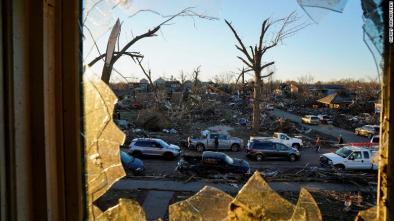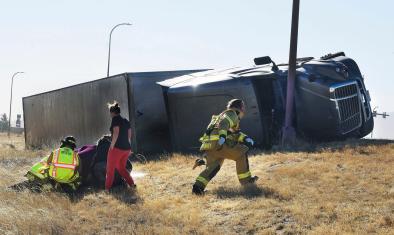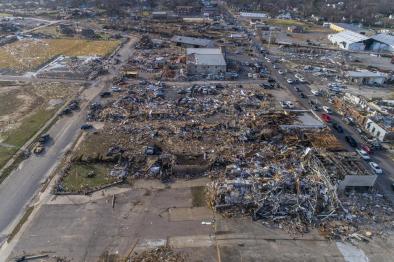Increasingly Powerful Tornadoes in the United States
Study key findings & significance
- There is a clear upward trend in tornado power over the past few decades that amounts to 5.5% per year controlling for time of day, time of year, natural variability, and the switch to a new damage rating scale.
- Part of the trend can be attributed to long-term changes in convective storm environments involving dynamic and thermodynamic variables and their interactions.
Abstract
Storm reports show an upward trend in the power of tornadoes. Quantifying the magnitude of the increase is difficult given diurnal and seasonal influences on tornadoes embedded within natural variations and made worse by changes in practices for rating damage. Here the authors solve this problem by fitting a statistical model to a metric of tornado power during the period 1994–2016. They find an increase of 5.5% [(4.6, 6.5%), 95% CI] per year in power controlling for the diurnal cycle, seasonality, natural climate variability, and the switch to a new damage scale. A portion of the trend is attributed to long-term changes in convective storm environments involving dynamic and thermodynamic variables and their interactions. Increasing power is occurring in environments where the effect of convective available potential energy is enhanced by increasing vertical wind shear. However, a majority of the trend is not attributable to changes in storm environments.
Related Content






